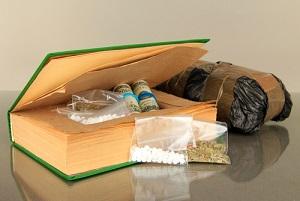What Are the Penalties for Possession Compared to Distribution in an Illinois Drug Charge?
 The state of Illinois recently passed a bill legalizing recreational marijuana use starting in 2020. However, there are still restrictions on amounts a person can have, as well as where you can buy it. There are also many other illicit drugs such as heroin, cocaine, and more that remain illegal in Illinois.
The state of Illinois recently passed a bill legalizing recreational marijuana use starting in 2020. However, there are still restrictions on amounts a person can have, as well as where you can buy it. There are also many other illicit drugs such as heroin, cocaine, and more that remain illegal in Illinois.
Drug charges are taken seriously in the state of Illinois. The Illinois Controlled Substances Act criminalizes the intentional possession, manufacture, and delivery of specific controlled substances. The severity of punishment for drug charges depends on three factors: the type of drug, the quantity, and the type of crime. It is important to know the difference between possession and the distribution of drugs in case you are facing charges for either of these crimes.
Drug Possession
Possession means that a person has a controlled substance under his or her control, which can be in the individual’s car, home, or on his or her body/clothing. In order to convict someone for drug possession, prosecutors must prove all of the following beyond a reasonable doubt:
- The defendant knew the identity of the controlled substance in question;
- The defendant knowingly had the controlled substance in his or her possession; and
- The controlled substance was in the defendant's immediate and exclusive control.
Most initial possession crimes are classified as misdemeanors, meaning a maximum of one year in jail. Possession of 15 grams or more of any substance containing cocaine or heroin is a Class 1 felony.
Drug Distribution
Drug distribution or trafficking involves the selling, transportation, and illegal import of illegal controlled substances. Drug distribution/trafficking is a felony, and it is a more serious crime than drug possession.
In order to convict a person of controlled-substance trafficking or distribution, the prosecution must prove beyond a reasonable doubt that the defendant knowingly brought a controlled substance into the state for the purpose of delivery or with the intent to deliver it somewhere else.
Charges for distribution range from a Class 3 to a Class X felony. For example, for a controlled substance such as cocaine, it is a Class 4 felony with a potential sentence of one to three years in prison and a fine up to $25,000. However, some Class 4 felony drug charges allow the court to sentence the defendant to probation and a substance abuse treatment program.
Class X felony penalties are much more severe, with a minimum prison term of six to 30 years and a maximum term of 15 to 60 years, depending on the type and weight of the substance(s) involved in the case.
Contact a Joliet Drug Crimes Defense Lawyer
Sometimes a person can be in the wrong place at the wrong time. Regardless of the circumstances, drug charges are taken very seriously. While recreational cannabis will be legal in Illinois in 2020, it is important to know all the laws when it comes to possession or distribution of drugs in the state. If you or someone you know is facing a drug charge of any kind, the penalties if convicted are stiff. A diligent Will County criminal defense attorney can build an aggressive defense on your behalf. Call 815-727-010 today to schedule a free consultation.
Source:
http://www.ilga.gov/legislation/ilcs/ilcs5.asp?ActID=1941&ChapterID=53
 815-727-0100
815-727-0100













